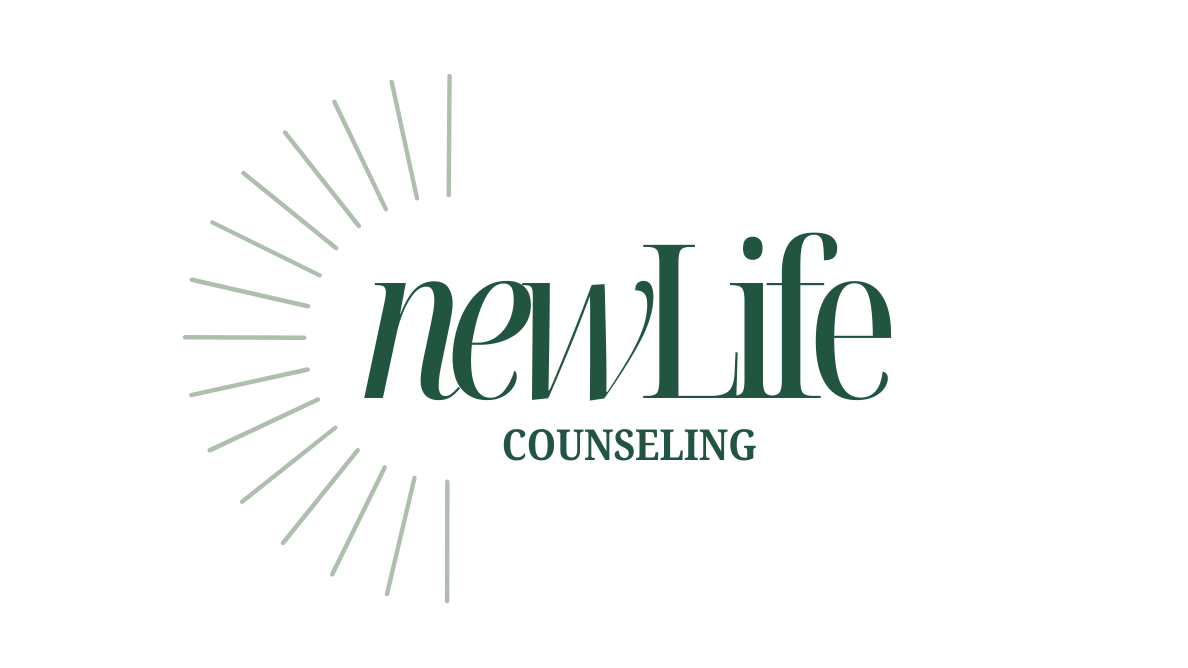What is New Life Counseling?
New Life Counseling (NLC), formerly Life Christian Counseling, is a ministry of 510 Foundation that offers affordable mental health counseling for individuals (13+) and couples in the Nashville, TN area. Counseling sessions occur at at Nashville First Church of the Nazarene. Alongside clinical counseling, NLC can provide integrative Christian counseling, educational resources, and peer support groups for a holistic approach to mental well-being.

Email NLC Director, Rebecca Bailey, to set up an appointment or if you have any questions: [email protected]

Individual counseling (ages 13 and up) addresses the client’s area of concerns by establishing therapeutic goals through collaboration between the counselor and client. Common reasons individuals seek counseling include family of origin, trauma, relationship distress, personal growth, mental well-being (anxiety, depression, etc.), and addiction/recovery.
Modalities: Cognitive-behavioral (CBT), Dialectical-behavioral (DBT), Art/Creative, Transactional Analysis, Internal Family Systems (IFS), and Brainspotting (trauma reprocessing).

Pre-marital counseling* utilizing the SYMBIS assessment tool helps couples understand how their personality, family of origin, and expectations influence their relationship before the “big day”. Over the course of 5 sessions finances, spirituality, trauma history, communication, conflict, and intimacy will be explored.
*A certificate of completion will be provided at the last session, which meets the State of TN qualifications.

Marriage counseling aims to increase healthy communication patterns and conflict resolution skills, while improving connection and intimacy. Other concerns include betrayal-recovery, life transitions, loss, and addiction/recovery.
Modalities: Gottman-Method, Transactional Analysis, Emotionally-focused Therapy (EFT), Internal Family Systems (IFS)

Seasonal and year-round peer support groups address mental wellbeing, grief, divorce, and faith-based 12-step programming. Peer support groups are led by individuals with lived experience and utilize issue-specific curricula.

On-site marriage, addiction/recovery, trauma-informed, and parenting workshops are provided throughout the year.
Off-site training can be provided to organizations who would like to improve their competencies in mental health, trauma, conflict-resolution, or crisis de-escalation.
Payment Processing
What is the cost of therapy services at NLC?
As a non-profit who values affordable mental health treatment for all, we offer a sliding scale of $35 to $100 (based on annual household income) for a traditional 50-minute session.
Does NLC accept insurance?
We are unable to file insurance; however, we are able to process most Health Savings Accounts (HSA) cards. In addition, a Superbill may be provided to the client for services rendered, which may be submitted to the insurance company for reimbursement to the client (please check with your carrier to determine the eligibility).
What forms of payment does NLC take?
We take Cash / Check (made payable to “510 Foundation”) / and Debit or Credit cards. Payments will be received at the conclusion of the counseling session. A receipt can be provided, upon request.
FAQ
There are many reasons why people come to therapy. Sometimes it is to deal with long-standing psychological issues, or problems with anxiety or depression. Other times it is in response to unexpected changes in life such as a divorce or work transition. Many seek the advice of counsel as they pursue their own personal exploration and growth.
Working with a skilled therapist can help provide insight, support, and new strategies for all types of life challenges. Therapy is right for anyone who is interested in getting the most out of their life by taking a proactive approach to finding purpose and passion, creating greater self-awareness, and working towards change in their lives.
Counseling can have benefits and risks. Therapy often leads to better relationships, solutions to specific problems, and significant reductions in feelings of distress. However, since counseling often involves discussing unpleasant aspects of one’s life, clients may experience uncomfortable feelings like sadness, guilt, anger, and frustration.
If you receive a diagnosis of a mental health disorder, it can carry with it a social stigma. A diagnosis may affect your ability to acquire life or health insurance in the future, or it may interfere with certain job opportunities.
An intake session is an opportunity for a counselor to get to know you, your family history, psychological symptoms, and therapy goals. This first session also gives you an opportunity to ask questions and learn more about the therapeutic process – which usually helps to reduce anxiety about counseling.
It’s a win-win session!
You and your counselor will establish a treatment plan after the intake and in subsequent sessions this will guide interventions, assignments, etc., as this aids into creating a manageable therapeutic process for clients to achieve their goals.
Most counselors will check with their clients regularly to ensure that the process is enlightening and progressing for the client.
Depending on the reasons for therapy, the duration is variable, because a client is the agent of change. Clients who put what they’ve learned or processed in session, into regular practice outside of the office will see the best results.
LCC aims to meet the mental health needs of any client, regardless of their religious beliefs or membership status.
The personal history form will give clients an opportunity to share their religious beliefs, which is important for a therapist to understand. This will come up during the intake session because we want to help address all areas that are important to our clients. Many clients seeking services at a Christian counseling center will desire an integrative approach; and so, our therapists are equipped to ethically provide both a clinical mental health and spiritual health perspective within the therapeutic relationship.
The law protects the privacy of communications between a client and therapist. Except as otherwise indicated in this document, the providers at LCC can only release information about your treatment to others if you sign a written authorization form that meets certain HIPAA requirements. 4 exceptions are listed below:
Child abuse: If a provider at LCC has reason to believe that someone under 18 years of age has been injured as a result of brutality, abuse or neglect, or has been sexually abused, the law requires that report be made to child protective services or another appropriate governmental agency. Once such a report is filed, your provider may be required to provide additional information.
Abuse of an adult: If a provider LCC has reason to suspect that an adult who is vulnerable physically, mentally, or emotionally has suffered abuse, neglect or exploitation, the law requires that the therapist report to the department of human services. Once such a report is filed, the therapist may be required to provide additional information.
Client’s threat to harm another: If a client has communicated an actual threat of bodily harm against a clearly identified victim, and a provider at LCC believes that the client has the ability and likelihood of carrying out the threat, then she is required to take reasonable steps to protect the victim, including notifying the potential victim, contacting the police, and/or seeking involuntary hospitalization for the client.
Client’s threat to harm self: If a client is deemed to be an immediate threat of harm to self, a provider at LCC may be obligated to seek hospitalization for him/her, or to contact family members or others (including law enforcement) who can help provide protection.



